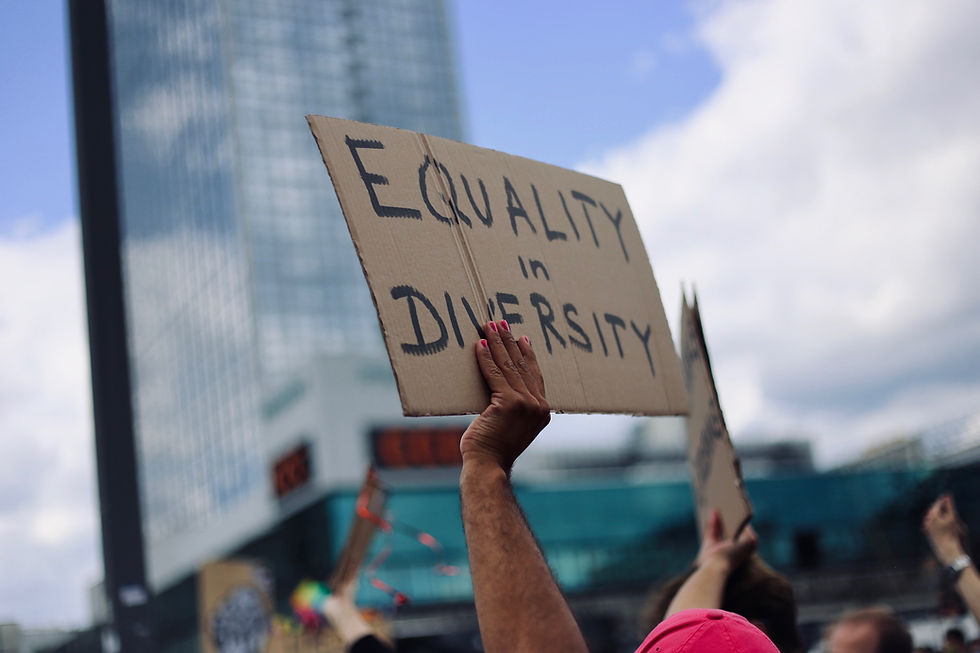What do you see out there? Reflecting the World We Live In
- Abdul Jimoh
- May 26, 2023
- 3 min read

In the ever-changing world of movies and television, the representation of various cultures plays a pivotal role in shaping the stories and characters we witness on screen. As our society becomes increasingly diverse and interconnected, it becomes imperative for the entertainment industry to accurately reflect the world we live in. Today, we will explore the significance of cultural representation and delve into how it contributes to a more inclusive and authentic media landscape.
THE IMPORTANCE OF CULTURAL REPRESENTATION
Cultural representation encompasses the depiction and inclusion of diverse ethnicities, races, religions, genders, sexual orientations, and abilities. By portraying a wide range of characters and storylines, films and television shows have the power to celebrate and normalize the experiences of marginalized communities. This enables individuals from all walks of life to see themselves represented, fostering a sense of belonging and empowerment. Media often perpetuates stereotypes and biases, reinforcing harmful narratives that can lead to prejudice and discrimination. Through accurate and respectful cultural representation, the entertainment industry can challenge these stereotypes and promote understanding. By offering nuanced portrayals of diverse characters, films and TV shows can combat prejudice and contribute to a more inclusive society.
Beyond its social impact, cultural representation also enhances the quality of storytelling. By incorporating diverse perspectives, fresh narratives and unique experiences come to the forefront, enriching the overall storytelling process. When storytellers embrace cultural diversity, they tap into a vast reservoir of untold stories, adding depth and authenticity to their creations.
When individuals see characters on screen who share their cultural background, they are more likely to feel validated and empowered. Representation aids in developing positive self-identities and inspires individuals to embrace their heritage and cultural roots. By providing relatable role models and narratives, film and television contribute to the growth and development of diverse audiences.
Exposure to different cultures through film and television promotes cultural exchange and appreciation. When audiences are exposed to diverse stories and traditions, it opens doors for dialogue, learning, and a deeper appreciation of the richness and beauty of various cultures. This cultural exchange helps break down barriers and promotes a sense of global interconnectedness.

STRATEGIES FOR PROMOTING CULTURAL REPRENSENTATION
1. Embrace Diverse Casting and Hiring Practices: Filmmakers and production companies can prioritize diverse casting and hiring practices. By ensuring that people from various cultural backgrounds are involved both in front of and behind the camera, authentic representations can be achieved. This includes embracing diverse screenwriters, directors, producers, and other key creative roles.
2. Foster Authentic Storytelling: Authentic storytelling requires genuine engagement with the cultures being depicted. Writers and directors must undertake thorough research and consult with experts from the communities they aim to represent. This approach helps avoid stereotypes and ensures accurate and respectful portrayals.
3. Support Independent Filmmakers and Underrepresented Voices: Supporting independent filmmakers from diverse backgrounds is crucial for fostering cultural representation. Independent productions often bring fresh perspectives and untold stories to the screen. By amplifying underrepresented voices, the industry can contribute to a more diverse and inclusive media landscape.
4. Encourage Collaboration and Partnerships: Collaboration and partnerships between filmmakers, content creators, broadcasters and festivals, and community organizations can lead to meaningful and impactful projects. By working together, they can create authentic and culturally sensitive content that resonates with audiences.
Broadcasters and Streamers bear a significant responsibility in shaping narratives and influencing societal attitudes through cultural representation. It is essential to approach representation with respect, authenticity, and thorough research.
Cultural representation in film and television is not merely a question of diversity; it is a reflection of our interconnected world. Through diverse casting, authentic storytelling, and collaboration, we can create a media landscape that celebrates the richness of our collective human experience.







Comments